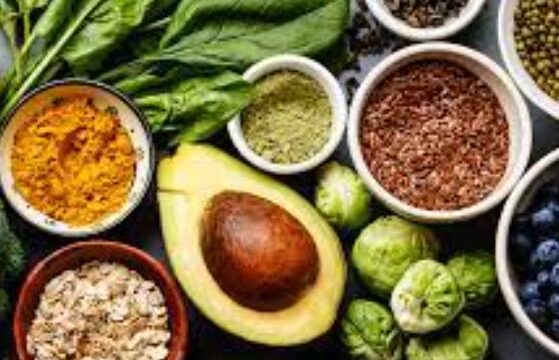Life is full of changes, both expected and unexpected.
Moving to a new city, starting a new career, entering parenthood, or adjusting to retirement can stir up emotions that feel exciting and overwhelming at the same time.
These moments of transition often challenge both the body and the mind.
While emotional resilience comes from a combination of self-care, strong relationships, and personal growth, food can play an important role in creating stability. Eating well during these periods provides not only physical nourishment but also emotional grounding. In the United States, where busy lifestyles and fast-paced schedules are common, it can be easy to reach for quick fixes that do little to support long-term wellness. However, choosing foods that nurture both body and mind can make transitions smoother and more balanced. Let’s explore some of the best foods that help maintain emotional wellness when life feels uncertain. Whole Grains for Steady Energy Times of change can leave people feeling scattered or drained. Whole grains such as oatmeal, quinoa, and brown rice provide steady energy by releasing glucose slowly into the bloodstream. This prevents the highs and lows of sudden energy spikes, which can mirror emotional swings. Starting the morning with a warm bowl of oatmeal topped with berries or using quinoa in a hearty salad can set the stage for mental steadiness throughout the day. For individuals navigating stressful changes, stable energy can also mean improved focus and reduced irritability. Leafy Greens for Mood Support Spinach, kale, and Swiss chard may not always be the first foods that come to mind for emotional wellness, but they are packed with nutrients that help the brain. These greens are rich in folate, a vitamin connected to the production of mood-regulating neurotransmitters. Including leafy greens in a smoothie, salad, or warm soup can bring more calm and resilience during transitions. A diet rich in these vegetables has been associated with clearer thinking and a greater sense of balance, making them especially supportive when life feels unpredictable. Nuts and Seeds for Comforting Crunch Almonds, walnuts, chia seeds, and sunflower seeds bring more than just satisfying crunch. They provide magnesium, which helps regulate stress responses, and omega-3 fatty acids, which support brain health. The act of snacking on a small handful of nuts or sprinkling seeds over yogurt can be both grounding and comforting. When routines are shifting, it is easy to feel unsettled, but having these nutrient-dense foods on hand can bring a sense of stability. They are also portable, making them a reliable choice for busy days filled with new responsibilities. Berries for Brightness and Clarity Blueberries, strawberries, and raspberries are rich in antioxidants that protect the brain from oxidative stress. Their natural sweetness provides a refreshing lift, which can be particularly valuable when navigating emotional adjustments. Adding berries to breakfast bowls, blending them into smoothies, or enjoying them as a light snack can support memory and mental clarity. During life transitions, when worry or overthinking can feel heavy, these fruits can provide a natural sense of brightness and clarity. Fermented Foods for Gut Balance Gut health is often linked to mood. Yogurt with live cultures, sauerkraut, kimchi, and kefir introduce beneficial bacteria that support digestive balance. Research suggests that a balanced gut may have a positive influence on emotional well-being, often referred to as the gut-brain connection. Including a small serving of fermented foods daily can be a gentle way to nurture inner calm. For someone adjusting to a new stage in life, whether that means a college student leaving home for the first time or an adult embracing a career shift, a healthy gut can support overall adaptability. Fatty Fish for Emotional Strength Salmon, sardines, and mackerel are rich in omega-3 fatty acids, which help maintain emotional steadiness and support brain health. Cooking a simple salmon dish with roasted vegetables can be both nourishing and comforting. For those who prefer plant-based options, flaxseeds, chia seeds, and walnuts offer similar benefits. Including these foods in weekly meals can provide emotional grounding, which is especially helpful when facing uncertainty. Dark Chocolate for Gentle Comfort In moderation, dark chocolate can be a soothing addition to an emotionally supportive diet. Rich in flavonoids, it may encourage better blood flow to the brain, supporting focus and calmness. The small ritual of enjoying a square of dark chocolate can also provide comfort during stressful days. This mindful moment of indulgence can feel like a pause, reminding individuals to slow down and savor simple joys while navigating change. Legumes for Lasting Nourishment Beans, lentils, and chickpeas are full of protein, fiber, and slow-digesting carbohydrates. They keep blood sugar stable and provide steady fuel, which can help prevent mood swings. A warm bowl of lentil soup or a chickpea salad not only nourishes but also comforts. Legumes are especially grounding during transitions because they are budget-friendly, versatile, and satisfying, making them an accessible choice for anyone building new routines. Fruits and Vegetables for Color and Variety Beyond specific categories, the rainbow of fruits and vegetables plays a vital role in emotional wellness. Bright orange carrots, deep red peppers, and purple eggplants bring a wide range of vitamins and minerals that keep the body and mind strong. During life transitions, it is easy to fall into repetitive meals, but variety on the plate can remind individuals of the richness and diversity of life itself. Creating colorful meals is not only visually uplifting but also symbolically encouraging. Hydration as an Emotional Anchor While food is central, water should not be overlooked. Staying hydrated supports mental clarity, energy, and mood. Life transitions often involve new schedules that can disrupt basic habits. Keeping a water bottle nearby can serve as a reminder of consistency in times when everything else feels unfamiliar. Herbal teas, such as chamomile or peppermint, can also bring comfort and warmth while contributing to hydration. Bringing It All Together Life transitions can feel like stepping into unknown territory, and food has the power to make the journey more manageable. Choosing whole grains for steady energy, leafy greens for brain support, nuts for grounding comfort, berries for brightness, fermented foods for gut balance, fatty fish for steadiness, and legumes for lasting nourishment creates a foundation for emotional wellness. Dark chocolate and colorful produce add both joy and variety, while hydration anchors the entire process. The beauty of these choices lies not only in their nutritional value but also in their ability to create small moments of care throughout the day. Whether enjoying a homemade meal with family or savoring a quiet snack alone, food can remind us that even during times of change, stability and comfort are within reach. Emotional wellness thrives on these simple acts of nourishment, making life transitions less overwhelming and more empowering.






